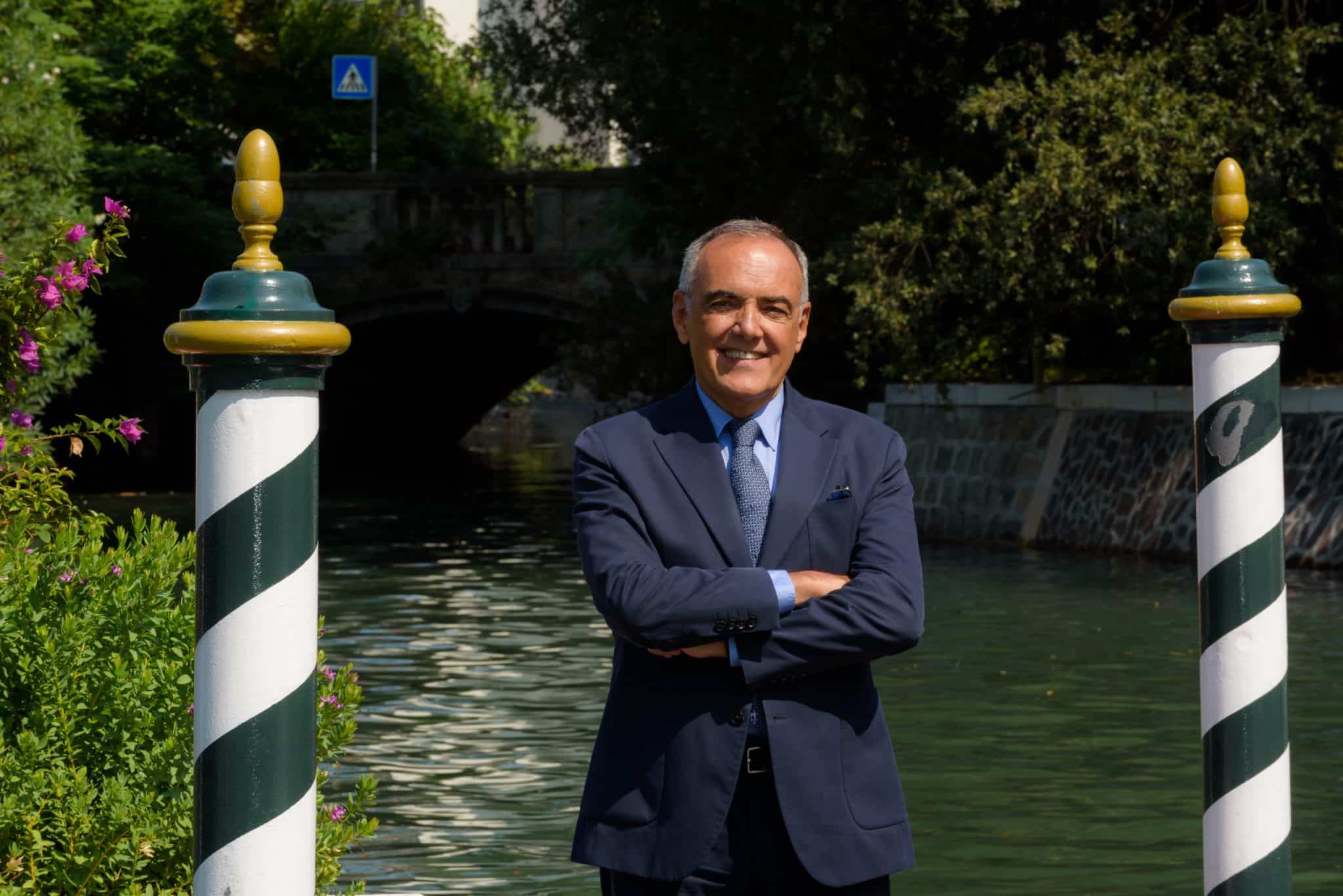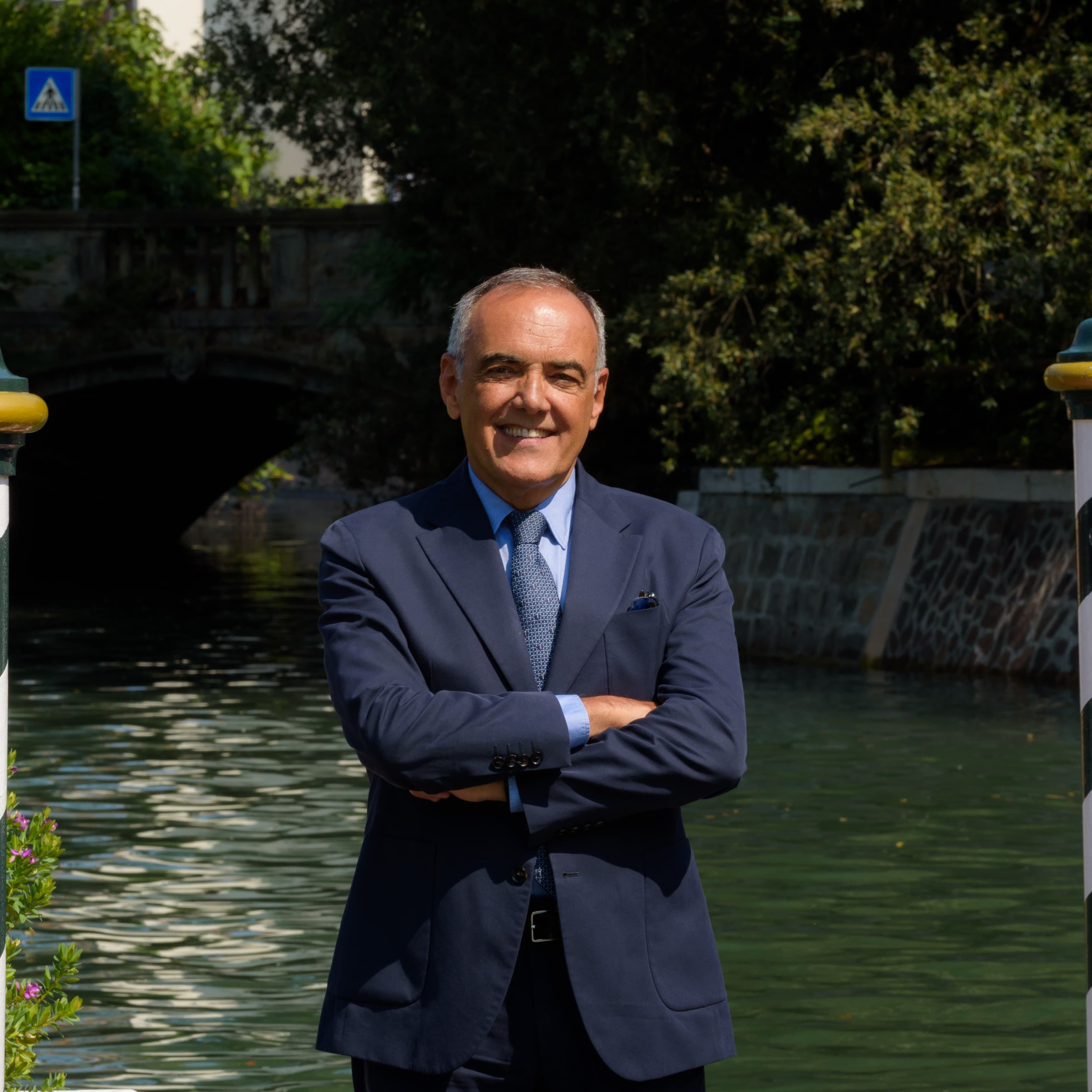

Speaking to his good friend, the writer and editor Malcom Pagani, the Venice Film Festival chief describes how he chartered the seas from the Italian provinces to heading the red carpet at the maritime city.
In the same year the missing actress Fulvia Colombo announced the advent of a new era to the nation: “RAI Radiotelevisione Italiana today begins its regular television broadcasting service” and the tricolour hoisted itself on the peaks of K2, Alberto Barbera started at the summit of his own mountain. Since that summer of 1954, almost seven decades later, Barbera has forgotten nothing: “I saw the first film of my life, a swashbuckling movie, in the parish hall of my town of origin, Occhieppo Inferiore.”
His uncle was a cashier while almost everyone in his native Biella had to deal with the textile sector, with wool, knotting and tightening ties and welding invisible lines. Barbera pursued his own art in the darkness of a room, poring over films. Because as Eugenio Montale suggested: “You see, in these silences in which things are abandoned and seem close to betraying their last secret, sometimes we are expected to discover a mistake of nature, the dead point of the world, the ring that does not hold, the thread to be broken that finally puts us in the middle of a truth.” He found his poetry in that darkness. His echo has the laughter of someone who has seen so much cinema, and it has a different tone than that of everyone else. It fills the air. He is the offspring of Mamma Roma and Ninotchka. They leave hereditary marks on the skin. Barbera often laughs, and the sound of his laughter tells a longer story than his appearance allows one to assume. Where he is from, it is said that age is only a convention: “Old is only the one who dies.”
Barbera is seventy-two-years-old. He has recently had a daughter, and he has been in charge of the Venice Film Festival for more than ten years. He thinks back to the first time he landed in the lagoon: “I was a military man in Aosta. I came here for a seminar on Bernardo Bertolucci” and the sense of time that has passed returns on his face. In an autoscatto giovanile (or a selfie) taken when he was young, the Polaroid of Barbera does not suffer from graininess. “I was an idealist who thought we could change the world.” The world has changed and Barbera, as Paolo Conte would have said, has found “a rhythm of its own” to exist, to affirm a vision, to be appreciated far beyond his initial uncertainties. “As a boy I was very insecure,” he says. As with every Piedmontese, he understands that without application, talent is a burden. So, he finds his perfection in hard work: “When I started working in cinema, there was no one to tell you how to direct an exhibition. I loved cinema, but I had no idea how to turn that disposition into craft.” Before the managerial abilities, however, came the writing: “I was lucky, I started working for the Gazzetta del Popolo as a critic. Then, I owe almost everything thereafter to the Turin Festival. There I was General Secretary and then Director. I made many naive mistakes thanks to inexperience. At the time, I was terribly ashamed of it, then I realised that without making mistakes I would never grow up, nor could I ever learn a profession that at the time represented a dangerous bet on the exact border with each situational gesture.” One tries, one attempts, and sometimes, as happens in the best experiments, one invents their own effective formula. “Be attentive to the details and do not underestimate the consequences of fate. Do not leave anything out, especially things that at first glance seem less important to you.” Alberto Barbera’s father had been clear on the point. To solve problems, leaving things to the final moment are almost always in vain. “I feel like a perfectionist today. A perfectionist who knows that every aspect must be taken care of in advance.” Of course, some things can go wrong in the job, and expectations can fall short. But one must at least have the impression that every effort has been made to avoid failure: “Nobody can guarantee you will cross the finish line with satisfaction. Setting up a Festival is difficult and its success depends on a series of difficult variables to predict,” but, it is implied, you have to line up one brick after another—as it was lucidly explained by Marcello Mastroianni more than half a century ago: “I am an expert at building. That’s probably what I should have done in life. There, I should have stayed: in the yard. With the labourers. No one would ask me to be bright or to have personality. I would have been happy to build buildings. One brick on top of the other makes a wall. There is no arguing.” Barbera’s walls, like layer upon layer of concrete, are now very solid. But they came up almost paradoxically, breaking down barriers, upsetting consolidated liturgies, innovating…all in the context of an event that has relied on tradition. “The future” he says with conviction “is to accept the challenges that modernity puts before you. Refusing them to get into the trenches sooner or later leads to surrender”. Instead of giving up, Barbera bounced back. He did this constantly, putting the prestige of the Festival before his personal destiny. He made the facts speak for themselves. He sharpened his irony to coincide with the deadlines of the relevant shareholders (La Biennale and its Board of Directors, government bodies, appointments, the imponderable), which in regular cycles have given doubts, fibrillations, telluric currents. “I only know that I have a renewable contract of four years in four years time, and what awaits me in the future I can never know for sure. For years, I felt like a coach on the verge of dismissal, a product from the fridge, an expiring yoghurt. Today I stopped thinking about it. I am more confident in myself. In the end, I believe that I have reached an inner balance of my own. I live in the moment. I am not influenced by the past or the future. I work and I’m lucky because I like the work I do. I do not ask for anything else, I do not expect anything else.” In these long years he has overcome problems of space, selection, and competition. He supported young directors, not with tired slogans, but with genuine projects. He dropped predicting the future, obtained funds for his creation as only a civil servant should know how to do, fought with good prejudices, eliminated the asbestos, gave Venice back a market and a centrality in the world, and wide open horizons that the Lido—its ancient film history beginning in 1932—seemed fated to only regret. He is not boastful, but it’s easily perceptible that a little pride pulsates in him. “I am a person who by nature manifests very little of what he feels. I absorb everything and process it, but it’s hard for others to see.” Yet in some secret room, staring at himself in the mirror, Barbera will not see disappointment. He conquered a maritime republic, starting out from a land that only saw water raining from the sky, or flowing in the rice fields. He sailed from the provinces and knew how to charter the seas as Prime Minister, resisting the pressures that come with it. Whether he was even a skilled politician in his work, only history will remember, but his history, at least, is something nobody can tarnish: “I am a provincial. With the grace and tedium to death, as Guccini sang, that this origin entails.” He pauses and looks away: “As Paolo Sorrentino says, the provinces are a dark room in which you always bump into the same people. From that room, while maintaining a deep bond with my roots, I went out to search for more. But I do not deny anything that the provinces have given me. I knew nothing and I learned so much.” The sea stretches in front of the Palazzo del Cinema. A desire, an abstraction, a renunciation occurs in Barbera’s face. “I remember there was an hourglass in my father’s house. The sand flowed through a small hole so finely that at first it seems that the level above should stay the same. We then noticed that the sand disappeared only at the end. But before that, it removes so much…which I guess is not worth thinking about.” Barbera thinks like Dirk Bogarde: It’s not worth thinking about. At the Venice Film Festival, you are on the water without being able to touch it, and you swim with your eyes instead. In Venice we dream. In Venice, we no longer die.





